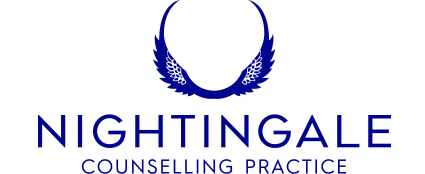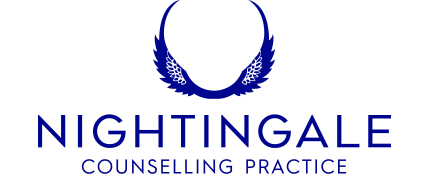It is really important for clients to see that different models of counselling are needed for different issues. If your counselling experience has been negative it maybe because your were not working with the appropriate counselling model or counsellor.
Our Mission
- To ensure that prospective clients are properly assessed and aligned to the most effective and appropriate counselling model that best suits their needs
- To ensure that the service delivered is clearly understood in simple jargon free language
- To ensure you feel safe in the knowledge that you have found a professional counselling organisation that understands the challenges and concerns you face when you decide to engage the services of a counsellor.
Our Approach
- Initial assessment session after which you will know exactly what type of counselling you will need to enable you to specifically address your personal or couple issues
- To align your specific requirements to the most effective counselling model
- To deliver a professional service delivered by professionally trained, experienced and qualified counsellors.
Our Belief
- You will experience a significant change in yourself awareness
- You will attain a deeper level of understanding of how to move forward
- You will experience life changing and tangible benefits which will stay with you and serve you well for the future.
WHAT IS COUNSELLING?
Counselling is a wider form of consultation than purely advice. The aim of counselling is to establish a process through which the counsellor helps you to:
- Express your true feelings
- Understand your situation more objectively
- Break negative patterns of behaviour often learned from others in your past as well as the present
- Change negative behavioural attitudes, patterns and cycles
- Make better informed decisions from the choices available to you
- Build confidence, self-awareness and self-esteem.
The counsellor uses active listening, reflective questioning and other therapeutic interventions and tools to deliver an effective counselling service based on their training and experience with other clients.
The relationship between counsellor and client must be based on trust, empathy and respect. A counsellor is trained to listen not to judge or blame which brings a great sense of relief to clients who are seeking answers and resolution. Counselling helps to establish a better way of relating to yourself and others.
Models of counselling
PSYCHODYNAMIC COUNSELLING
The psychodynamic model is founded on the premise that our behaviour, coping mechanisms and ways of relating to people are determined by past experience which is often held in the unconscious.
Psychodynamic Counselling will:
- Stress the importance of the unconscious and past experience in shaping current behaviour
- Encourage clients to explore unresolved issues and conflicts
- Examine effects of past relationships with parents and peers
- Help clients make sense of feelings, thoughts and associated memories
- Provide a trusting base from which the client can safely explore areas of personal difficulty
- Increase insight and self- awareness.
Psychodynamic Counselling is used in:
- Marriage and Couple Counselling
- Family Counselling
- Psychosexual Counselling
- Individual Relationship Counselling
- Personal Development Counselling
Exploration of issues, memories and everyday experiences occurs through active listening and reflecting back. The client is given an opportunity to bring to the surface their true feelings which leads to greater self-awareness and self-esteem.
COGNITIVE BEHAVIOURAL THERAPY
Cognitive Behavioural Therapy is a goal-oriented therapy based on the idea that thoughts, feelings and behaviours are interconnected. If our perception of a situation is negative, this will result in negative emotions and negative behaviours. This treatment focuses on changing patterns of thinking or behaviour that are behind people’s difficulties in order to generate alternative, more balanced ones.
Cognitive Behavioural Therapy will:
- Examine individual patterns of thoughts, emotions and actions
- Help clients make sense of overwhelming problems by breaking them down into smaller parts
- Examine ways to change unhelpful thoughts and behaviours
- Explore strategies to deal with problems
- Provide ‘homework’, in which clients can practice strategies in their everyday life
- Aim to achieve explicitly agreed therapeutic goals within a time-limited framework
- Equip clients with life-long skills which they can continue to practice and develop even after the sessions have finished, making it less likely that their symptoms or problems will return.
Cognitive Behavioural Therapy is used in:
- Stress
- Depression
- Addictions
- Anxiety and Panic Disorder
- Anger Management
- Trauma
- Compulsions
- Phobias
- Low mood
- Low Self-Esteem
- Obsessive-Compulsive Disorder
How you think about a problem can affect how you feel physically and emotionally. Cognitive Behavioural Therapy can help you to break this vicious circle of altered thinking, feelings and behaviour. CBT aims to get you to a point where you can ‘do it yourself’, and work out your own ways of confronting problems.
GESTALT COUNSELLING
The aim of Gestalt Counselling is to help the client identify where they have become stuck emotionally or in their thinking and beliefs and how this is affecting their lives in the present. The counsellor will then help the client to change beliefs and fixed patterns of unresolved feelings that get in the way of the client living an enjoyable and rewarding life.
Gestalt Counselling will:
- Help the client identify where they have become stuck emotionally or in their thinking and beliefs
- Examine how fixed patterns are affecting the client’s life
- Explore new and creative ways to resolve their difficulty
- Support clients to discover their own solutions to problems and to live their lives more fully
Gestalt Counselling is useful in:
- Anger management
- Stress control
- Sexual orientation
- Shyness
- Building confidence
- Relating to others
Becoming more aware of our feelings, emotions and thoughts and finding the most effective way to express them is the key aim of Gestalt Counselling. Through this process a person can become more able to tune in to their thought processes and gain control. The desired outcome will enable the client to meet their own needs and the needs of others.
INTEGRATIVE COUNSELLING
Integrative Counselling has evolved from the belief that no single model of counselling is able to provide for the immense complexity of each individual human being. Integrative Counselling enables a counsellor to draw on a variety of models of counselling to suit the client’s needs. Individuals think, feel and react in different ways. By integrating different ways of helping people bring about change in their lives, an Integrative Counsellor can work with each client to produce a unique therapy adapted to suit what that client wants and needs.
An Integrative Counsellor will:
- Examine the client’s experience and apply the appropriate theory and technique to suit them therapeutically
- Work with the client to build a personal counselling program
- Respond personally, effectively and with flexibility to the client’s whole experience
- Draw on a variety of theories and techniques
- Provide clients with ‘homework’ and worksheets, where helpful, to effect change
An Integrative Counsellor recognises and values the knowledge, skills and insight from all main models of counselling. If, however, the counsellor feels you would be best served by some focused work in a particular model of counselling they will ensure you are placed with the appropriate practitioner for a time.
PERSON-CENTRED THERAPY
The success of this therapy is not based on the skills of the counsellor, but rather on his/her attitude towards the client. Person-centred therapists believe the client has all the answers and by using the three core skills of empathy, unconditional positive regard and congruence, the client will get to a better place on their own.
Person-Centred Therapy will:
- Recognise that the quality of the therapeutic relationship is the most important factor
- Provide a safe environment with an empathic, accepting and non-judgemental therapist
- Support clients to realise their own resources, strengths and self-understanding
- Help clients to develop a more positive relationship with themselves and others
Person-Centred Therapy is useful in:
- Abuse
- Eating disorders
- Bereavement
- Trauma
- Children
The client determines the general direction of the therapy while the counsellor seeks to increase the client’s insights and self awareness through a variety of clarifying questions.
TRANSACTIONAL ANALYSIS
Transactional Analysis recognizes that the human personality is made up of 3 “ego states”: Parent, Adult and Child. At any given time a person experiences and manifests their personality through a mixture of behaviours, thoughts and feelings. Typically, according to the TA model, people consistently use all three ego-states. For example, in the Parent ego-state people behave, feel and think in response to an unconscious mimicking of how their parents (or other parental figures) acted out. Learning to strengthen the Adult state is the goal of TA.
Transactional Analysis will:
- Explore thoughts and behaviours that result in personal difficulties for the client
- Explore which ego states people are relating to others from
- Help the client identify what they wish to change and support them to achieve their chosen goals
- Provide the client with day-to-day tools for finding solutions to their problems
- Improve the quality and effectiveness of communication.
Transactional Analysis is useful for:
- Changing patterns of behaviour
- Relating in a different way
- Improving communication skills
- Improving our relationships
- Parenting our children
- Personal growth and self-development in business and educational contexts
Transactional Analysis recognizes the value and worth of every person. It is a goal orientated therapy where the therapist strives to empower the client, thus initiating a new direction in life.
NIGHTINGALE ASSOCIATE COUNSELLORS
Florence Gray is our Senior Counselling Consultant. She has significant experience and expertise working in counselling with Individuals, Couples, Relationships, Family Counselling, Personal Development, Conflict Resolution, Coaching and Consultancy. Florence founded Nightingale and strives to ensure that our services are of the highest professional standard and quality, delivered in a relaxed, supportive, confidential environment.
Associate Counsellors and Therapists
Our Senior Counselling Consultant personally selects all our Associate Counsellors and carefully assigns clients as appropriate. The Associate Counsellors and Psychologists in Glasgow are selected for their training, qualifications, talent, attitude, confidence, generosity of spirit and, above all, their commitment to their clients and the counselling profession.
All our Associate Counsellors remain independent and work in Private Practice, NHS, and large Counselling Agencies. Nightingale refers clients, who will benefit from their areas of expertise. Our team of qualified practitioners include Counselling Psychologists, Person-Centred, Psychodynamic, Integrative, Psychosexual and Cognitive Behavioural Therapists. We will often use a integrative approach to ensure our clients are getting what they need from their counselling experience to move to a better place.


